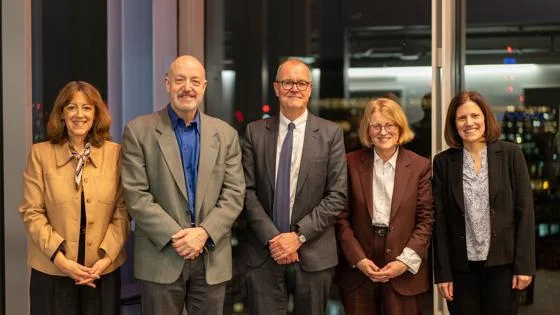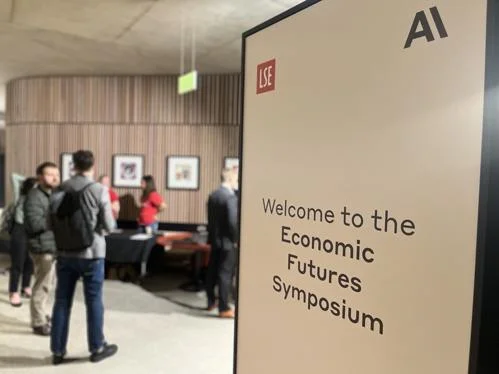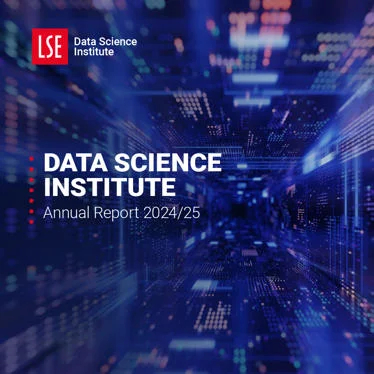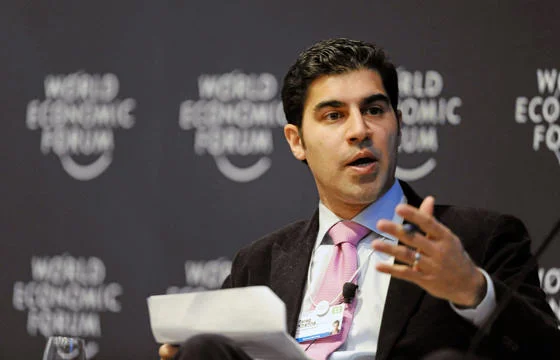Latest news from the Data Science Institute
Showing 1-12 results of 16
LSE academic appointed to United Nations Panel on AI
Professor Sonia Livingstone has been appointed to the UN’s Independent International Scientific Panel on AI
Friday 13 February 2026

LSE to launch Global Forum on AI and the Social Sciences with $2m award from the MacArthur Foundation
The annual Forum will convene dialogue and mobilise expertise, resources, and partnerships to ensure AI serves human and societal needs
Thursday 12 February 2026
Minister for Science, Innovation, and Research visits LSE
The Minister met with senior leadership at LSE and Professors Helen Margetts and Cosmina Dorobantu from the Data Science Institute.
Thursday 11 December 2025

Chatbots can influence political views, new study finds
Information-packed arguments were found to be the most convincing but least accurate.
Tuesday 9 December 2025

New report from UNDP: Will AI create a new Great Divergence?
A new report from UNDP whose principal author is LSE's Professor Michael Muthukrishna, warns that without deliberate action, AI could deepen global inequality instead of driving inclusion.
Monday 8 December 2025

International workshop bridges computational social science and qualitative research to build new methodological community
Monday 17 November 2025

Symposium explores the policy and research priorities needed to maximise AI’s economic benefits
The LSE Anthropic Economic Futures Symposium took place on Wednesday 5 November at The London School of Economics and Political Science (LSE).
Friday 7 November 2025

Data Science Institute Annual Report 2024/25 published
The Data Science Institute (DSI) has released its Annual Report for 2024/25, showcasing a year of dynamic growth, interdisciplinary collaboration, and impactful research
Thursday 23 October 2025

AlphaGeo partnership will harness data science to power sustainability research
A unique new partnership between AlphaGeo, the Global School of Sustainability, and the DSI will combine expertise and insight, harnessing data science to power sustainability research across LSE.
Thursday 25 September 2025

Pioneering AI research leader joins LSE to advance the DSI’s reach and impact
LSE's Data Science Institute (DSI) is delighted to announce the appointment of Cosmina Dorobantu as Professor in Practice
Tuesday 16 September 2025


Wolfson Foundation helps bring Global Hub vision to life with £1 million award
The Firoz Lalji Global Hub will include a specially designed studio space for data visualisation and analysis
Wednesday 23 July 2025
